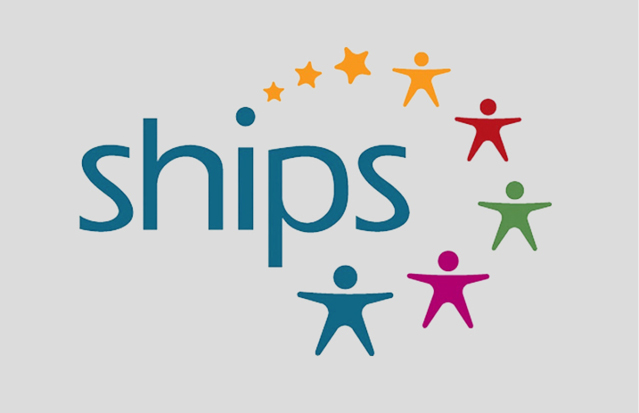
SHIPS (Screening to Improve Health in Very Preterm Infants in Europe) was a large-scale European research project that explored how structured follow-up programs impact the health and development of very preterm children. Building on the EPICE cohort, SHIPS gathered robust data across 11 countries to generate evidence for better long-term care strategies. The project aimed to support improvements in quality of life, healthcare outcomes, and family-centered care for children born before 32 weeks of gestation.
Very preterm infants are at significantly higher risk for health complications and developmental delays than babies born at term. Timely follow-up care is essential to monitor their progress, detect potential concerns early, and provide appropriate medical or developmental interventions. Despite the importance of these programs, there has been limited research on how effective current follow-up systems are, how consistently they are implemented across Europe, and what outcomes they actually deliver for children and families.
The SHIPS project set out to:
Assess the effectiveness of follow-up and screening programs for very preterm infants in Europe
Identify best practices to inform the creation of evidence-based guidelines
Improve health outcomes, developmental support, and quality of life for children born very preterm
Explore the experiences of families navigating post-discharge care
To achieve this, SHIPS conducted four in-depth sub-studies using a multi-faceted data collection approach, including parent questionnaires, developmental assessments by clinical psychologists, interviews with families, and surveys of follow-up program directors.
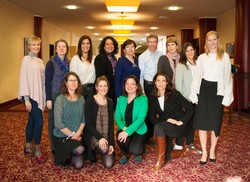
The Global Foundation for the Care of Newborn Infants (GFCNI) proudly contributed to SHIPS by integrating the patient perspective and personal experiences of families into the research process. As a key partner, GFCNI led the project's efforts in parental involvement, dissemination, and public outreach.
To ensure that the voices of parents were central to the project, SHIPS established a Parent Advisory Board (PAB) made up of 13 dedicated representatives from across Europe:
This diverse board ensured that parental insights informed every stage of the project, helping to shape more family-centered care strategies for very preterm infants.
We are pleased to present the findings from the SHIPS Study of Health and Wellbeing at Age 5, which offers valuable insights into the long-term outcomes of very preterm children. This study examined key areas including:
Child health and development
Family wellbeing
Use of healthcare services such as routine follow-ups, emergency visits, and hospitalizations
Parents of children born very preterm completed a detailed questionnaire when their child reached the age of five, helping to provide a clearer picture of their experiences and needs.
You can download the SHIPS brochure to explore the findings in English or your local language. The results highlight important trends and outcomes that can help improve follow-up care and guide future health policies.
The SHIPS research team continues to publish new results in peer-reviewed scientific journals. You can find the latest publications on the official SHIPS website.
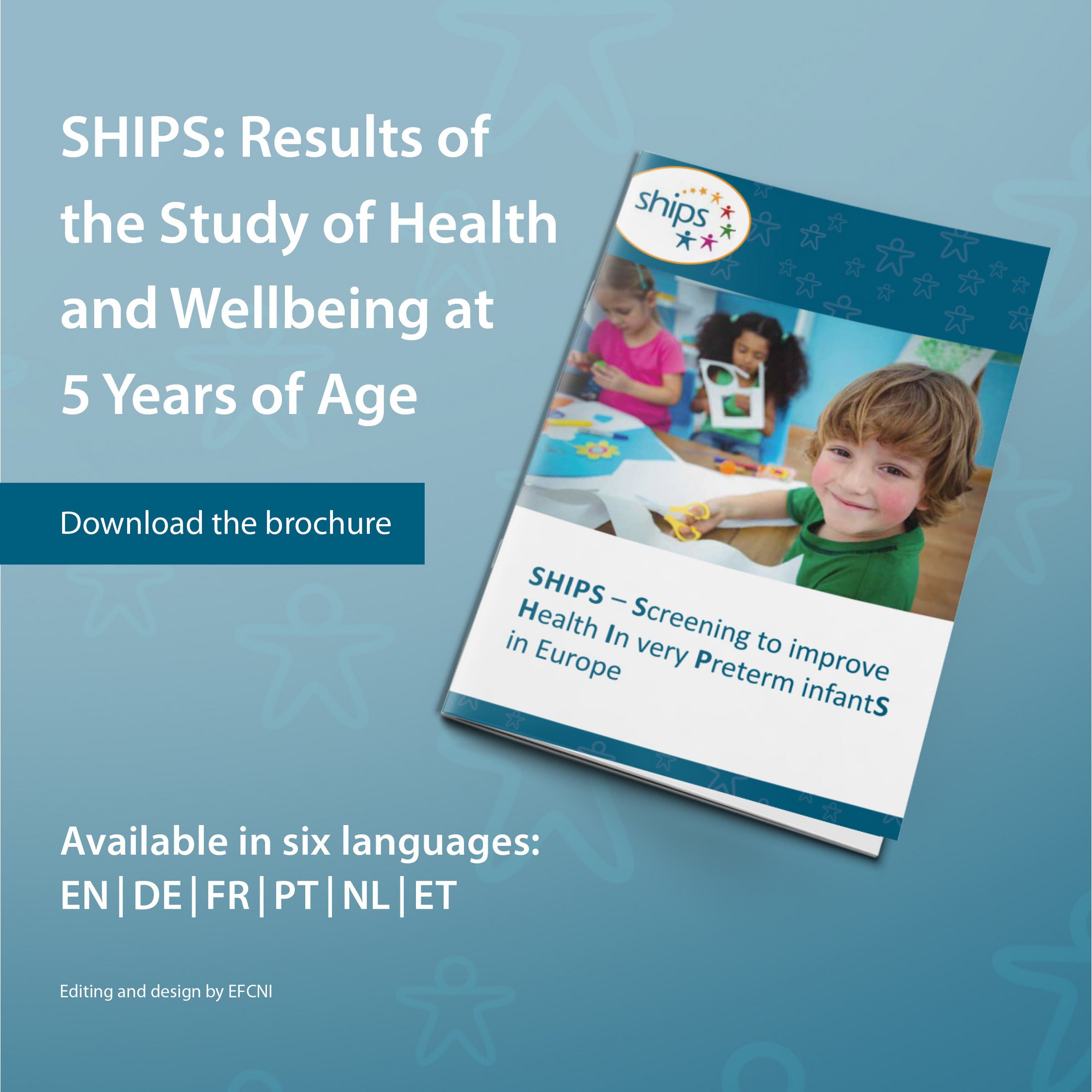
Resultaten van het “Onderzoek Gezondheid en Welzijn op 5-jarige leeft ijd” (Dutch)
Results of the “Study of Health and Wellbeing at 5 Years of Age” (English)
Uuringu “Tervis ja heaolu 5-aastaselt” tulemused (Estonian)
Résultats de “l‘étude santé et bien-être à 5 ans” (French)
Ergebnisse der “Studie zu Gesundheit und Wohlbefinden im Alter von 5 Jahren“ (German)
The SHIPS Toolkit provides a wide range of communication materials to help raise awareness about the importance of follow-up care for very preterm infants. These tools are designed for use by parents and families, follow-up teams, healthcare professionals, and other key stakeholders in health services, policy, and research.
Feel free to explore and use these materials to support your own outreach, advocacy, or project communication.
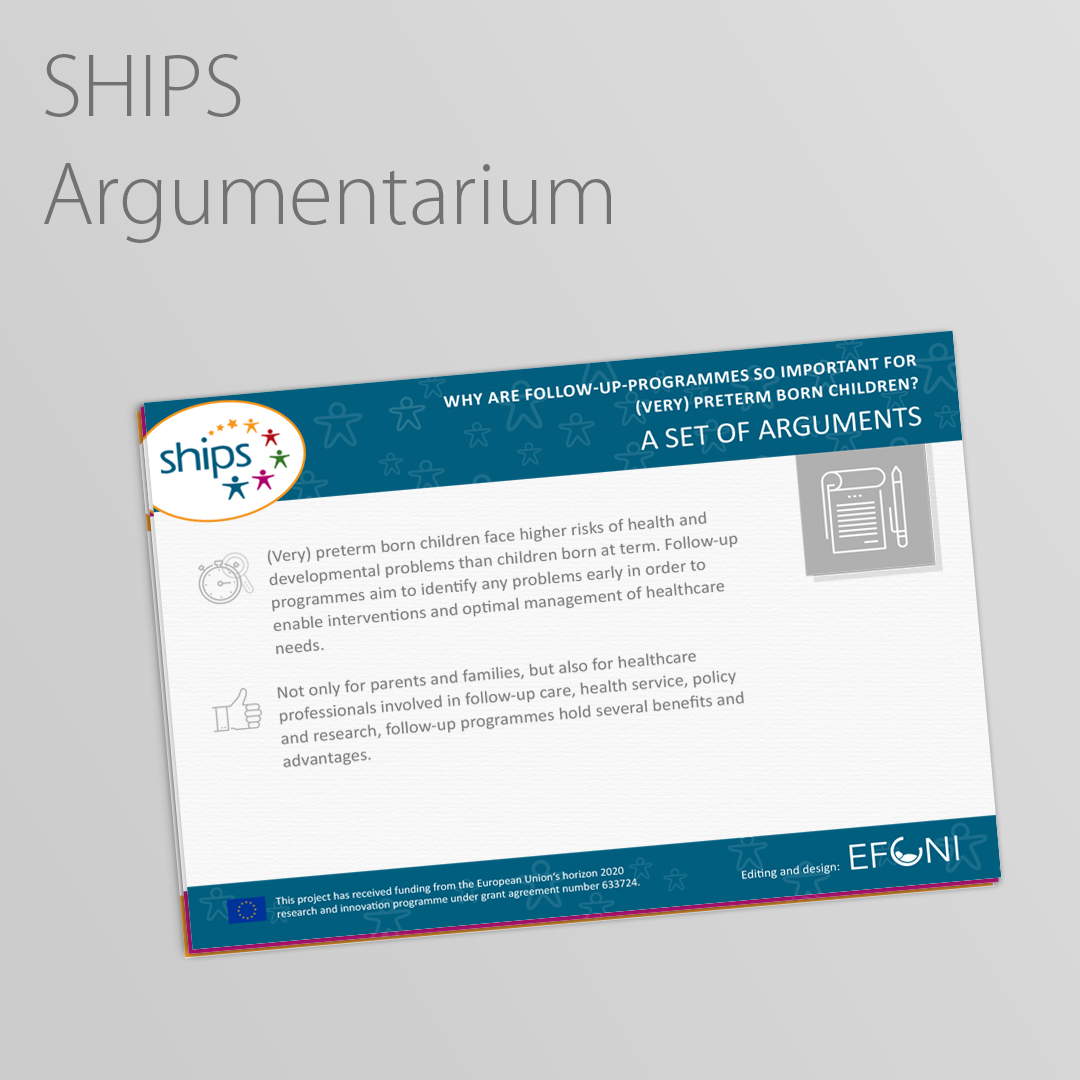
The SHIPS Argumentarium presents a clear set of arguments highlighting the value of structured follow-up programs. These are tailored for:
Parents and families
Follow-up teams and healthcare professionals
Stakeholders in policy, research, and health services
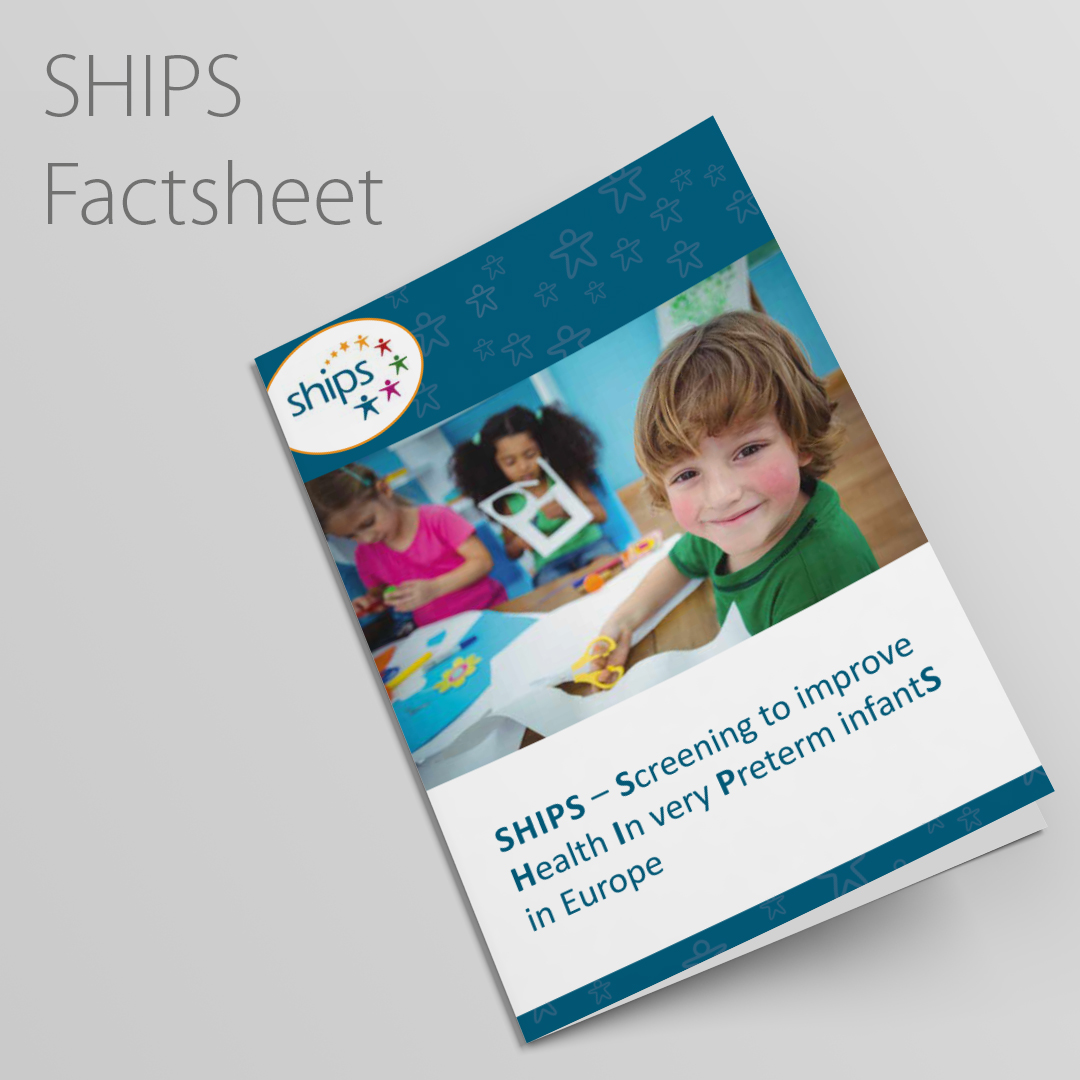
Learn more about the project’s goals, structure, and supporting partners in the SHIPS Factsheet.
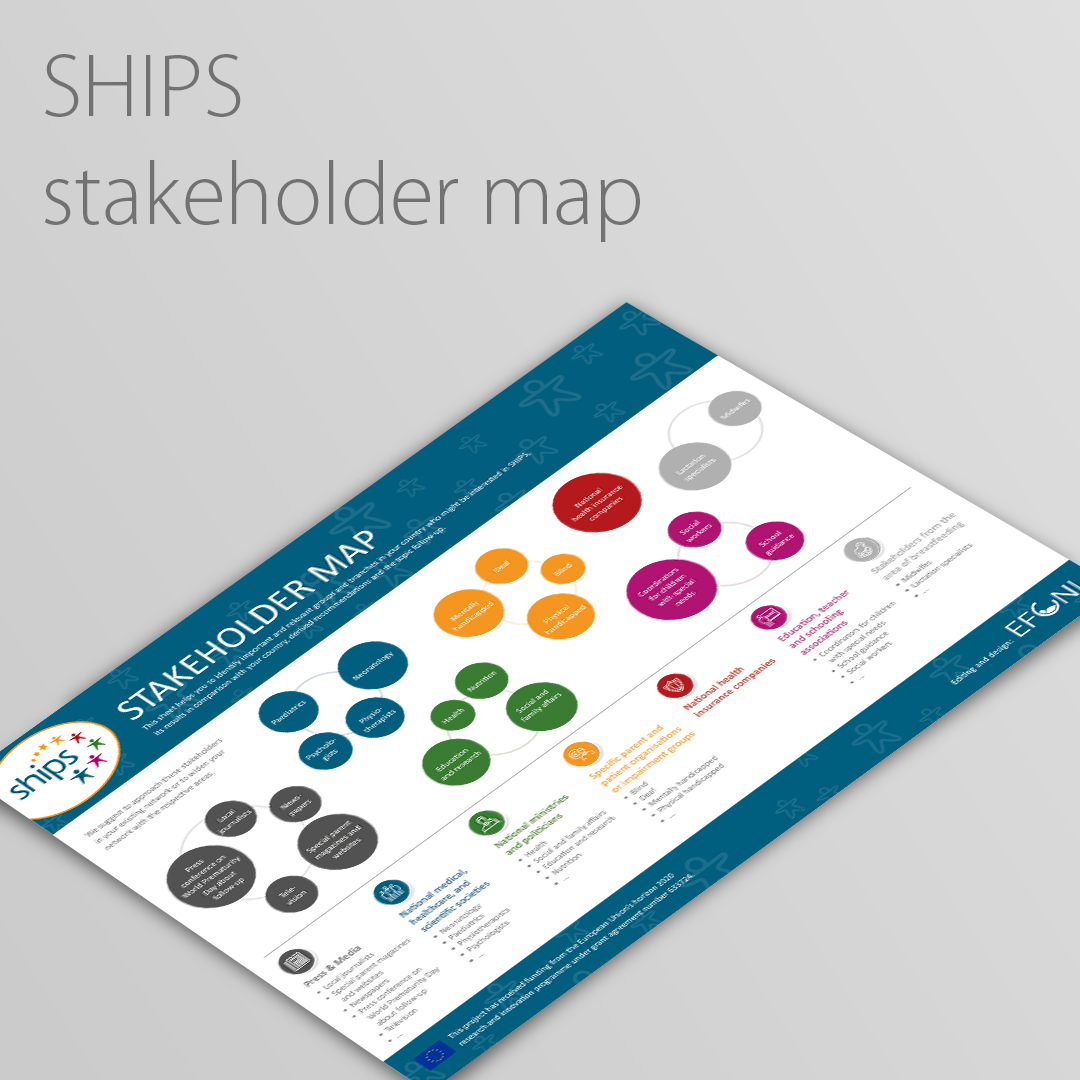
The SHIPS Stakeholder Map helps identify and engage specific stakeholders to strengthen advocacy and promote follow-up care.
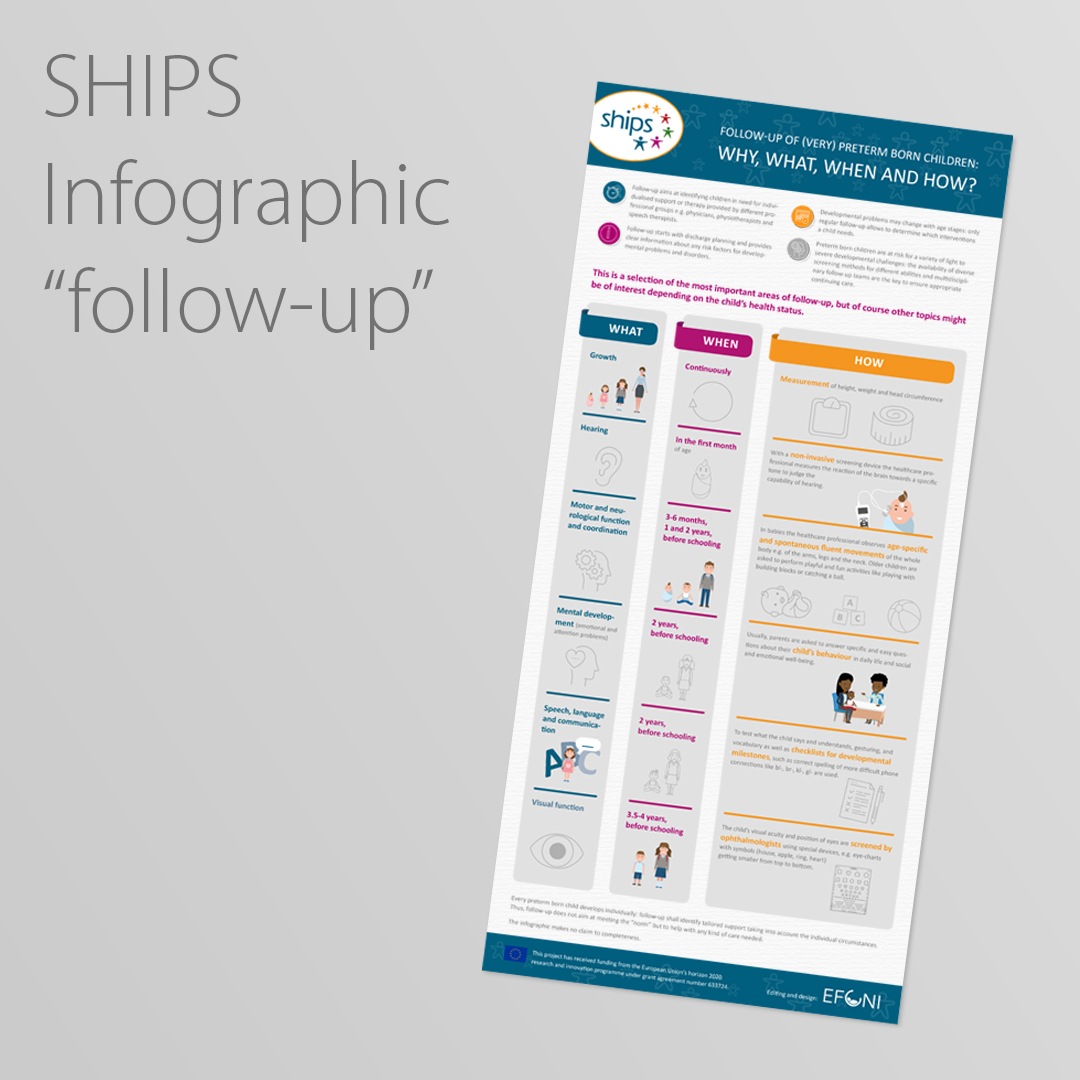
This graphic outlines the most important areas of follow-up care for children born very preterm.
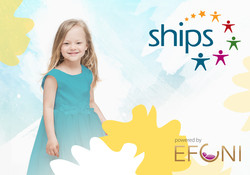
We extend our sincere thanks to all parents and children who participated in the SHIPS project. Your involvement made it possible to:
Describe the real-world follow-up and healthcare experiences of very preterm children
Close important gaps in scientific knowledge
Provide the data needed to raise awareness and drive improvements in follow-up care across Europe
Your contributions truly make a difference for future families.
We also warmly thank the SHIPS Parent Advisory Board for their valuable input, and the dedicated project team for their collaboration.
© 2025 GFCNI. All Rights Reserved.